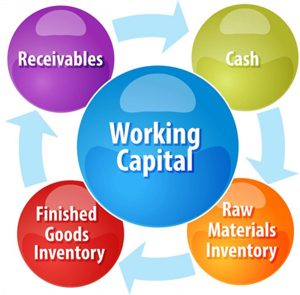Selling a business and life’s work can be like a month-long sprint.
From my experience, every deal experiences challenges, which you can learn from them as you prepare to exit your business. A few common challenges are summarized below:
- Small inner circle
- Negotiating net working capital
Small inner circle
To ensure confidentiality, typically only the most senior executives of your company are part of the deal’s inner circle. And there’s a caveat. While this helps ensure confidentiality, the senior leadership team may find themselves in an unfamiliar situation of juggling a due diligence list comprised of 100-plus very detailed and specific information requests while also keeping up performance of their day jobs of running the business. This can feel like a months-long sprint.

For the business owner planning to exit, we recommend you consider in advance who you need or want in your inner circle. They should include those you trust, but also those who have practical access to necessary information and experience in deal making or transactions. Ideally, everyone who sits in a key leadership seat of your company would be part of the inner circle but that may not be feasible when solving for confidentiality and continuing to run the business.
Negotiating net working capital
Every company has net working capital (NWC) needs, some are straightforward while others are more complex. The complexities are due to the unique nature of their businesses. For example, construction companies NWC includes items like work-in-progress, inventory and deferred revenue. Their NWC requirements — which impact their cash flows — are a function of the different projects that also have varying durations, payment/billing structures and timing of expenses. Furthermore, when it comes to closely held private companies from across industries, we commonly see there is little motivation to optimize receivables, payables and other working capital items.

For the business owner planning to exit, we recommend considering the following three steps to prepare for negotiating NWC. First, optimize the receivables and payables processes years before taking your company to market. This means negotiating favourable payment terms and strictly enforcing them with customers and suppliers so you can show a sustainable track record of improved cash management. Second, if there were periods of abnormally high NWC (e.g., poor collection with a former client), be sure to understand and document why it happened and why it will not reoccur. These facts and story telling will need to be communicated when you negotiate for a lower NWC peg. Third, if there is seasonality in your company’s NWC, then discuss with your M&A adviser the possibility of doing a deal when NWC is normally at its low point of the calendar year. Doing all three can save you millions of dollars
Every deal is different and will experience unique challenges. Nevertheless, we would not be surprised if you experience these and other challenges when selling your business. We recommend you thoroughly consider what sensitive information you will need to provide, and which key employees you want (and trust) working with you in sharing that information with prospective purchasers. And before you agree on selling, you will need to agree on a level of NWC which can be very complicated and contentious. The best way to negotiate NWC is to prepare in advance by not only optimizing it, but by understanding why it varies and using this insight to your advantage when you are at the negotiation table.
Howard Ma, CFA, has extensive financial advisory experience.





Recent Comments
comments for this post are closed